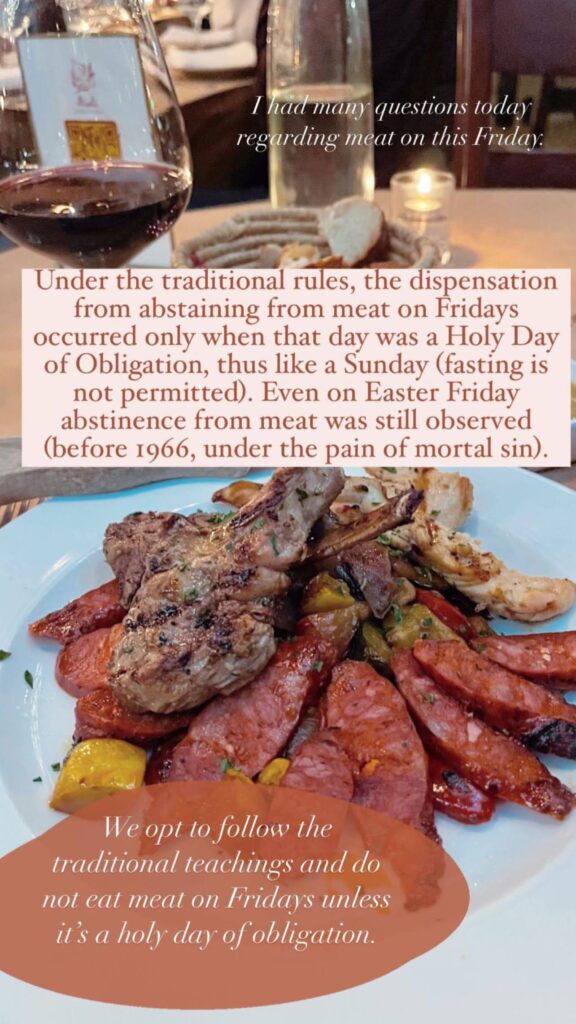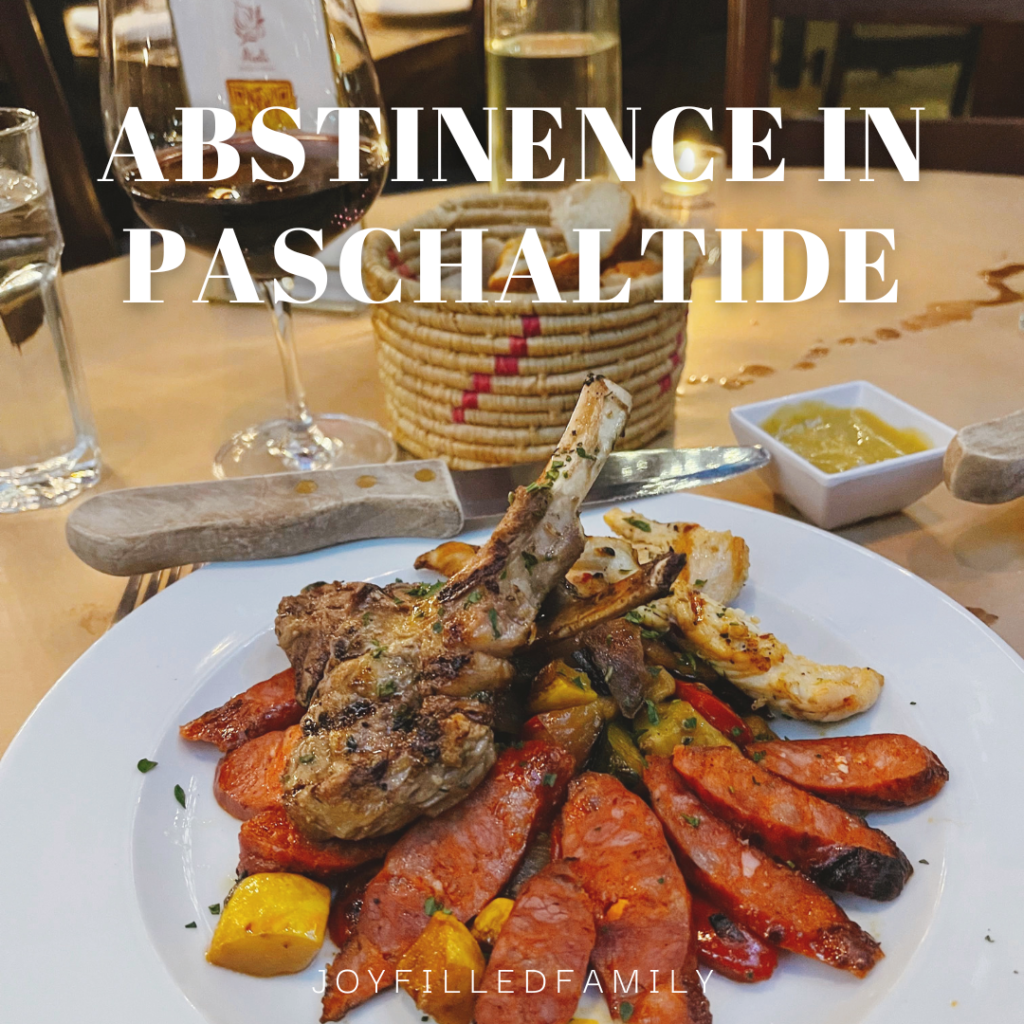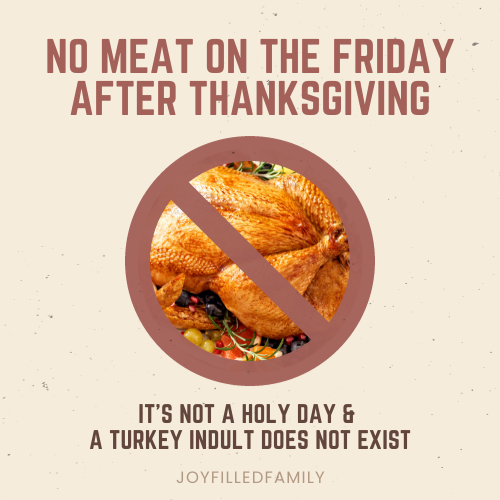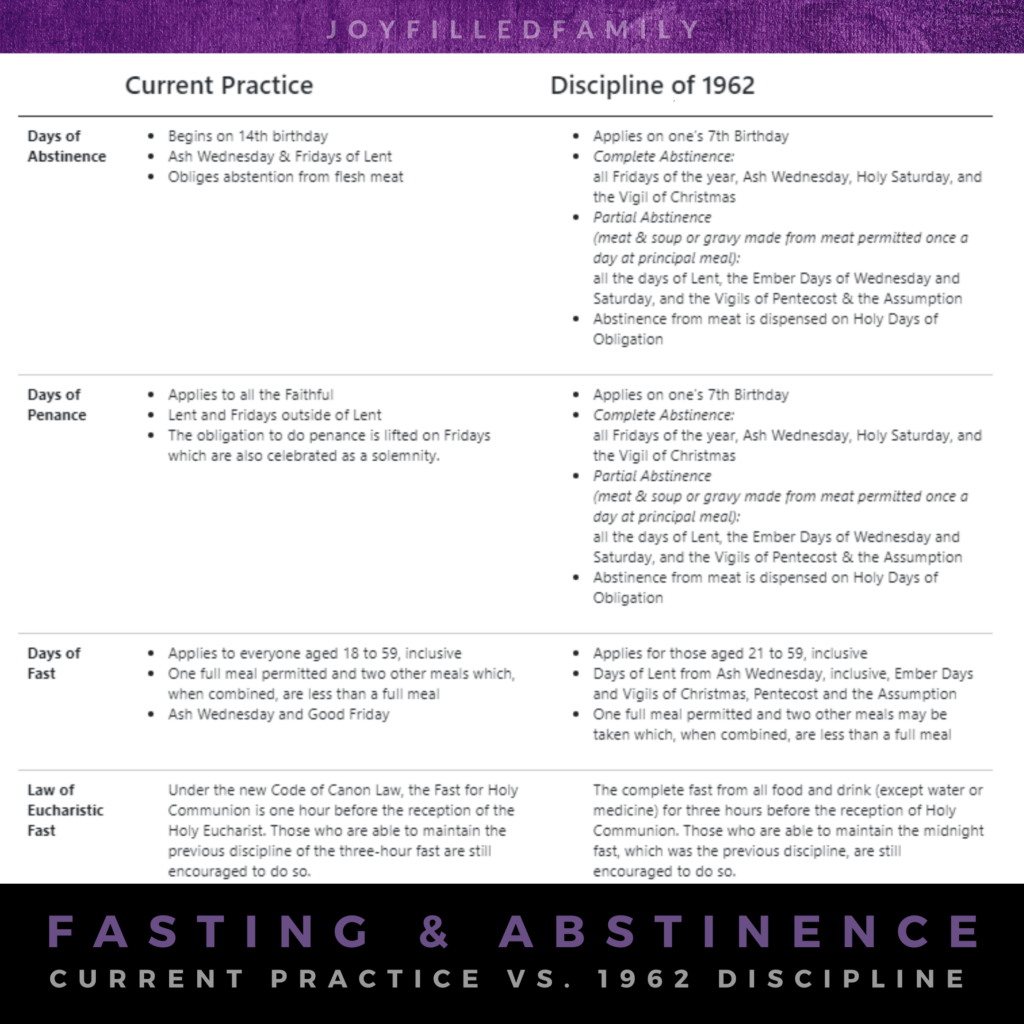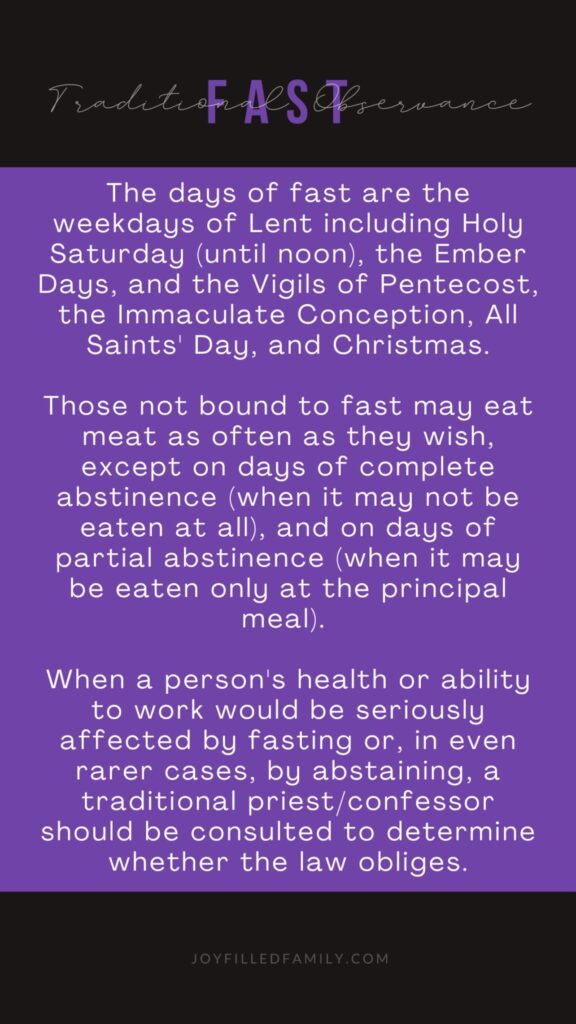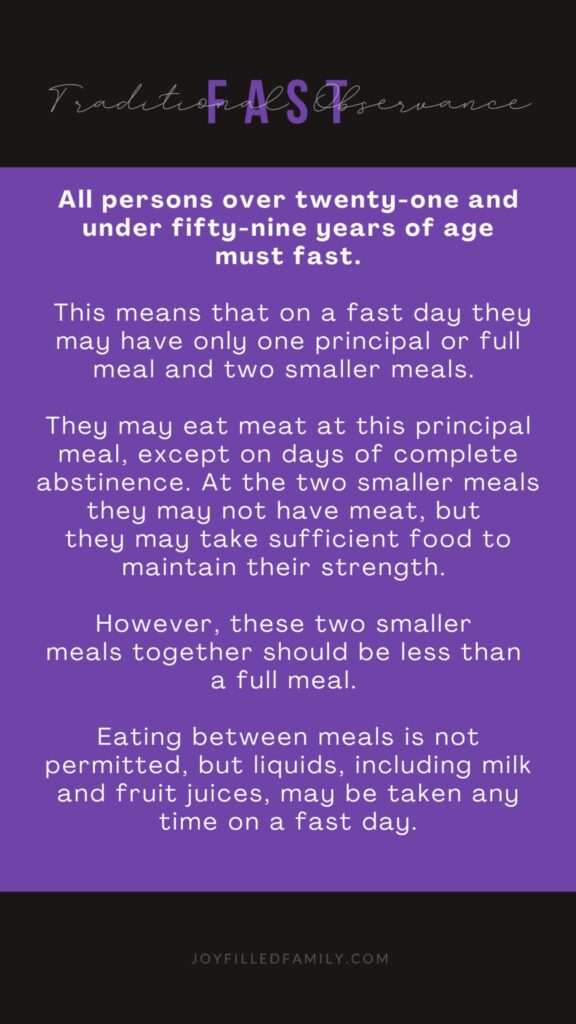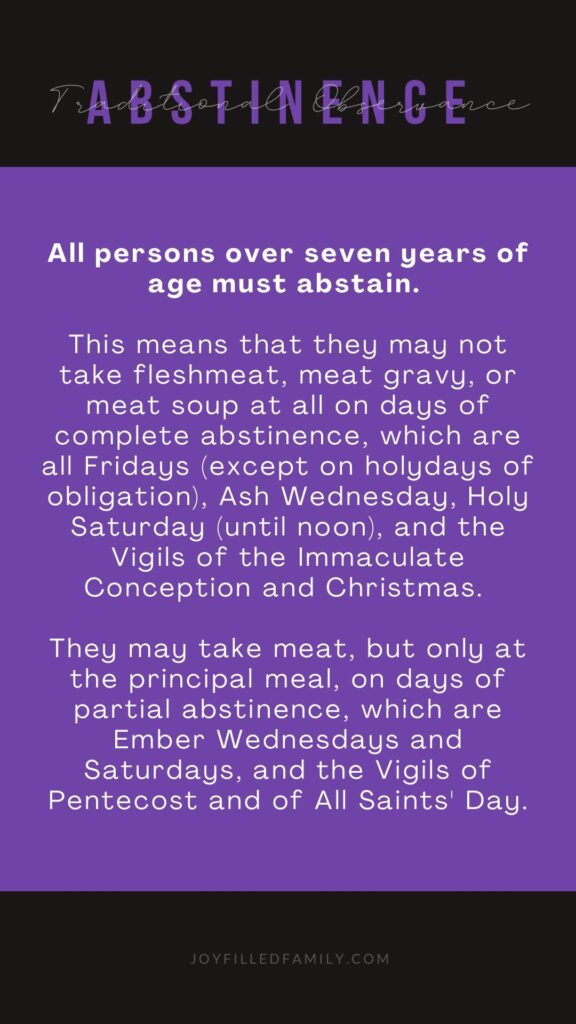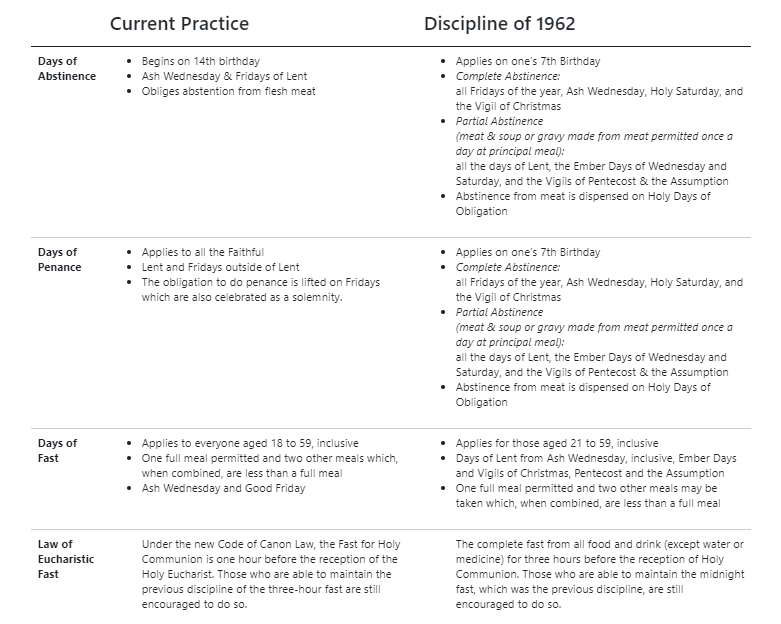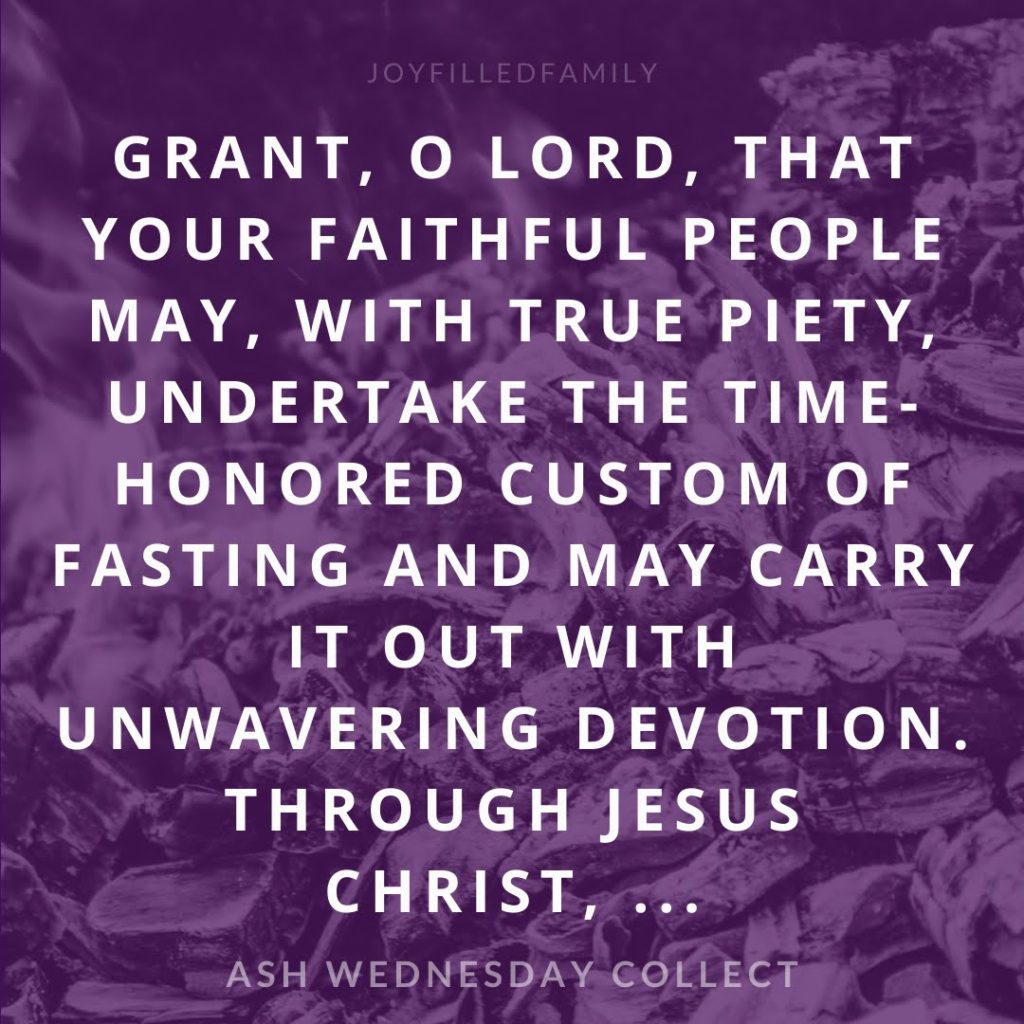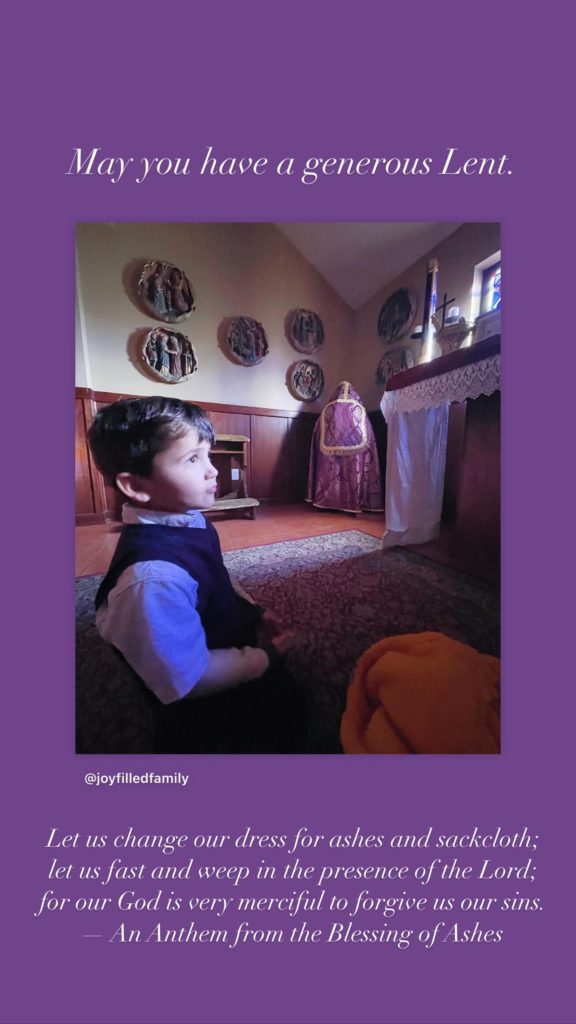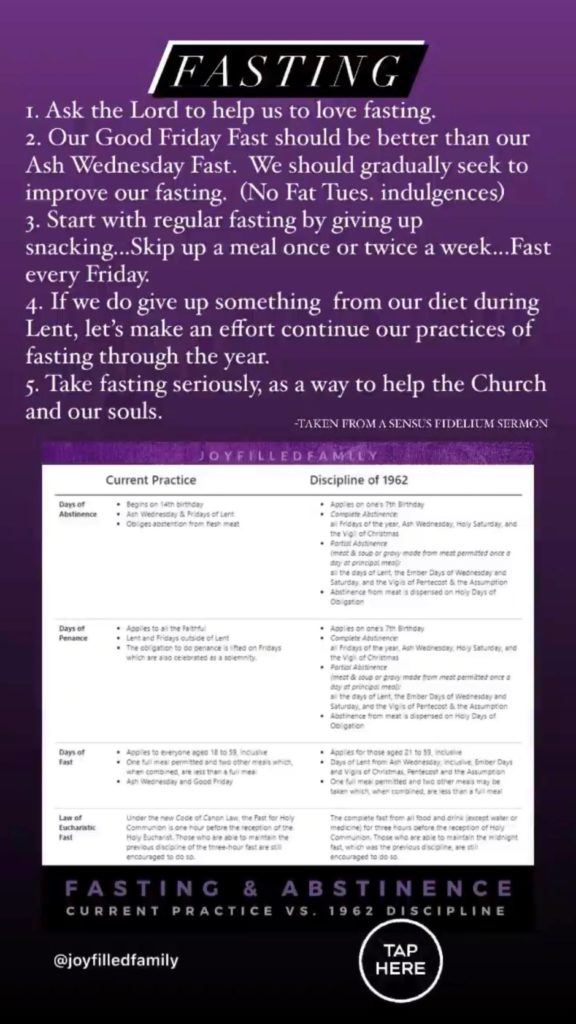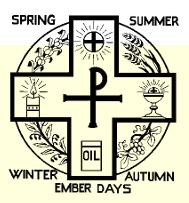On Fridays, we commemorate Our Lord’s passion and death.
We are still bound to abstain from meat each Friday in the entire year. This is required not just in Lent but also during the season of Pascaltide — even on Friday in the Octave of Easter.
Under the traditional rules (1917 Code of Canon Law) the dispensation from abstaining from meat on Fridays occurred only when that day was a Holy Day of Obligation, thus like a Sunday (fasting is not permitted).
Even on Easter Friday abstinence from meat was still observed (before 1966, under the pain of mortal sin).
Easter Friday is not a feast of precept (i.e., a Holy Day of Obligation) and neither is any Friday in the Pascal Season between Easter Sunday and Trinity Sunday. The 1917 Code of Canon Law outlined the rules of fasting and abstinence in Canons 1250-1254.
➕
Prayer to Jesus Christ Crucified:
My good and dear Jesus, I kneel before you asking you most earnestly to engrave upon my heart a deep and lively faith, hope, and charity, with true repentance for my sins, and a firm resolve to make amends. As I reflect upon your five wounds and dwell upon them with deep compassion and grief, I recall the words the prophet David spoke long ago concerning yourself: they have pierced my hands and my feet, they have numbered all my bones!
#octaveofeaster #eastertide #pascaltide #jffeaster #liturgicalcalendar #catholichomeschool #traditionalcatholic #1917codeofcanonlaw #tradcatholic #traditionalcatholicism
